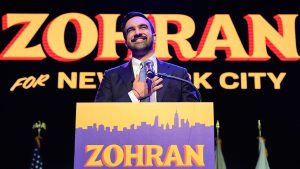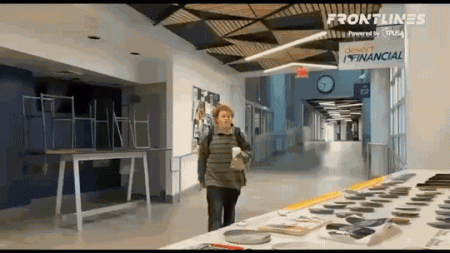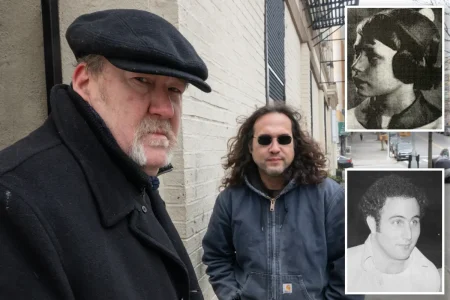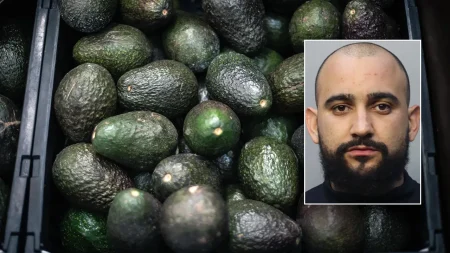Venezuela on Edge: A Nation Bracing for Potential U.S. Military Action
Across Venezuela, an atmosphere of anxiety permeates daily life as citizens contemplate the possibility of American military intervention. During recent visits to various regions of the country, conversations with Venezuelans from diverse backgrounds revealed a population caught between political tensions and survival concerns. Many citizens expressed fears about becoming collateral damage in an escalating conflict between their government and the United States. Despite differing views on President Nicolás Maduro’s leadership, there seemed to be a unifying sentiment against foreign military action that could further destabilize their already fragile nation. “We may disagree about our government,” explained Maria Gonzalez, a schoolteacher from Caracas, “but most Venezuelans agree that outside military intervention would only bring more suffering to people who have already endured so much.”
The specter of intervention has become increasingly tangible as diplomatic relations between Venezuela and the United States continue to deteriorate. Government-organized civilian defense drills now regularly take place in neighborhoods across the country, with ordinary citizens—from elderly pensioners to young professionals—learning basic tactical maneuvers should conflict erupt. Meanwhile, state media broadcasts constant warnings about American aggression, featuring patriotic programming that harkens back to Venezuela’s independence struggles. This messaging resonates with some segments of the population who view potential U.S. action through the lens of historical Latin American interventions. However, others privately express hope that international pressure might catalyze political change without violence. The complex reality on the ground defies simple narratives, with Venezuelans navigating daily life while simultaneously preparing for scenarios they hope will never materialize.
The economic dimension of this crisis cannot be overstated, as ordinary Venezuelans face extraordinary challenges in meeting basic needs. Once South America’s wealthiest nation due to its vast oil reserves, Venezuela now struggles with hyperinflation, chronic shortages, and crumbling infrastructure. In markets across Caracas, food prices change almost hourly, and many citizens spend their entire day searching for affordable essentials. Despite these hardships, many Venezuelans demonstrate remarkable resilience and community solidarity. Neighborhood cooperatives have formed to pool resources, while informal support networks help the most vulnerable. “We survive together or not at all,” noted Carlos Mendez, who runs a community kitchen in a working-class district. This economic precariousness adds another layer to concerns about military action, as many fear that any conflict would destroy what little stability remains in their economic ecosystem.
The political landscape in Venezuela presents a study in contrasts, with sharply divided perspectives on both domestic leadership and international involvement. Supporters of the Maduro government, while acknowledging hardships, often attribute the country’s difficulties to American sanctions and what they characterize as economic warfare. Government loyalists point to social programs that, despite diminished capacity, continue to provide some support to the poorest citizens. Opposition sympathizers, meanwhile, describe a system they view as increasingly authoritarian, citing restricted press freedoms and contested elections. Yet conversations with Venezuelans across the political spectrum revealed nuanced views that transcend simplistic divisions. Many expressed disillusionment with political leaders of all stripes, suggesting that ordinary citizens ultimately bear the consequences of high-level political maneuvering. This political fatigue has led some to disengage from politics entirely, focusing instead on day-to-day survival strategies.
Despite geopolitical tensions, cultural life in Venezuela continues with remarkable vibrancy, reflecting a population determined to maintain human connections and creative expression. In Caracas and beyond, musicians perform in makeshift venues, artists create with limited materials, and communities celebrate traditional festivals despite economic constraints. These cultural expressions often serve as both escape and resistance—ways to preserve Venezuelan identity amid crisis. Young Venezuelans, in particular, demonstrate innovative approaches to maintaining community in challenging circumstances. Digital platforms have become crucial spaces for organization and expression when physical gatherings face limitations. “Our culture is our strength,” explained Elena Ramirez, a young artist organizing community mural projects. “When everything else becomes uncertain, our music, our art, our traditions remind us who we are.” This cultural resilience provides a counterpoint to the narrative of a nation defined solely by its hardships.
Looking ahead, Venezuelans face profound uncertainty about their country’s future trajectory. The possibility of U.S. military action represents just one scenario in a complex landscape of potential developments. Some citizens express cautious optimism about diplomatic solutions, while others prepare for prolonged crisis conditions regardless of international dynamics. Venezuelans with means have often already departed—creating one of the largest migration crises in recent history—while those remaining frequently express determination to rebuild their nation despite overwhelming obstacles. The human dimension of Venezuela’s situation transcends political analysis, revealing a population navigating daily life with extraordinary adaptability. As one elderly Caracas resident philosophically noted, “Venezuela has survived many storms throughout its history. Whatever comes next, we will find a way forward.” This spirit of cautious resilience perhaps best characterizes a nation at a crossroads, bracing for uncertain developments while hoping for peace and recovery.










